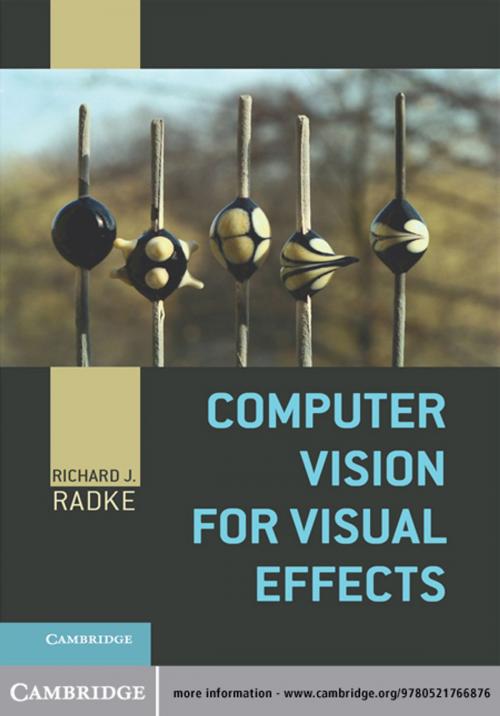Computer Vision for Visual Effects
Nonfiction, Computers, Application Software, Computer Graphics, General Computing, Business & Finance| Author: | Richard J. Radke | ISBN: | 9781139609784 |
| Publisher: | Cambridge University Press | Publication: | November 19, 2012 |
| Imprint: | Cambridge University Press | Language: | English |
| Author: | Richard J. Radke |
| ISBN: | 9781139609784 |
| Publisher: | Cambridge University Press |
| Publication: | November 19, 2012 |
| Imprint: | Cambridge University Press |
| Language: | English |
Modern blockbuster movies seamlessly introduce impossible characters and action into real-world settings using digital visual effects. These effects are made possible by research from the field of computer vision, the study of how to automatically understand images. Computer Vision for Visual Effects will educate students, engineers and researchers about the fundamental computer vision principles and state-of-the-art algorithms used to create cutting-edge visual effects for movies and television. The author describes classical computer vision algorithms used on a regular basis in Hollywood (such as blue screen matting, structure from motion, optical flow and feature tracking) and exciting recent developments that form the basis for future effects (such as natural image matting, multi-image compositing, image retargeting and view synthesis). He also discusses the technologies behind motion capture and three-dimensional data acquisition. More than 200 original images demonstrating principles, algorithms and results, along with in-depth interviews with Hollywood visual effects artists, tie the mathematical concepts to real-world filmmaking.
Modern blockbuster movies seamlessly introduce impossible characters and action into real-world settings using digital visual effects. These effects are made possible by research from the field of computer vision, the study of how to automatically understand images. Computer Vision for Visual Effects will educate students, engineers and researchers about the fundamental computer vision principles and state-of-the-art algorithms used to create cutting-edge visual effects for movies and television. The author describes classical computer vision algorithms used on a regular basis in Hollywood (such as blue screen matting, structure from motion, optical flow and feature tracking) and exciting recent developments that form the basis for future effects (such as natural image matting, multi-image compositing, image retargeting and view synthesis). He also discusses the technologies behind motion capture and three-dimensional data acquisition. More than 200 original images demonstrating principles, algorithms and results, along with in-depth interviews with Hollywood visual effects artists, tie the mathematical concepts to real-world filmmaking.















